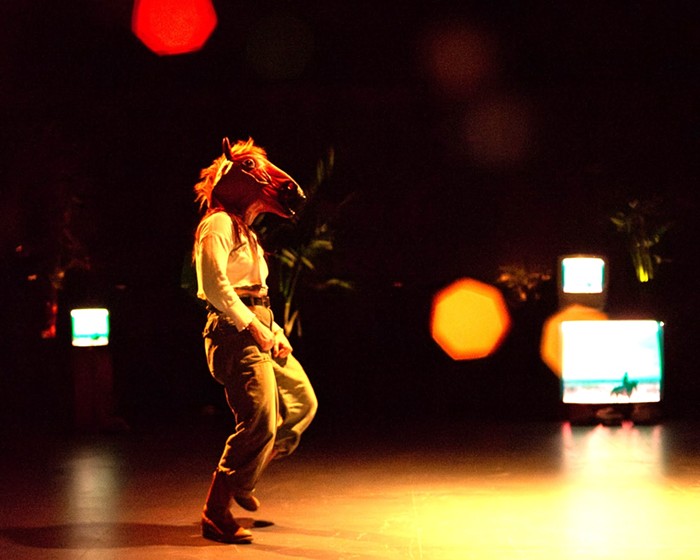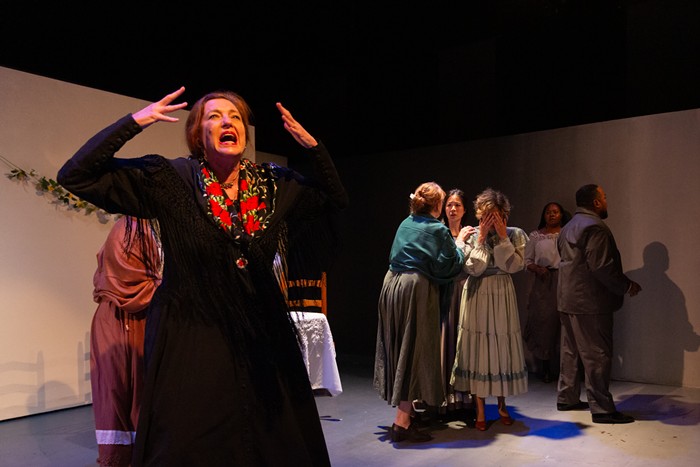IN AN UNPRECEDENTED collaboration, the Oregon Shakespeare Festival (OSF) and Portland Opera have teamed up to present The Pirates of Penzance, the Gilbert and Sullivan show first mounted by OSF in 2011. We spoke with OSF Director Bill Rauch about transitioning Pirates to Portland, and why he was drawn to the show in the first place.
MERCURY: Why The Pirates of Penzance?
BILL RAUCH: It's so silly, and so fun, and so full of love, but I'm also always interested in social context—it's a pretty hardcore social satire. There's a lot embedded in it about social class. It's an indictment of [the British class system], in a very loving and very strong way. There's a lot about hypocrisy in the piece. The subtitle is "The Slave of Duty," and the more I dig into it this second time around—yes, it's absurd, it's ridiculous, it's comically exaggerated, but it's really deep, this issue of feeling torn between different moral obligations. The choices we make, where we think we have to live a certain way, and you end up making terrible choices because you end up going by someone else's sense of morality instead of your own moral compass. It's a great time, it's a great laugh, but like all great works, it's endured because there are really smart, serious themes.
How did this collaboration with Portland Opera come about?
When we produced The Pirates of Penzance at OSF in 2011, Chris Mattaliano, the director here at Portland Opera came to see it, and he enjoyed it. We got to meet each other and spend time together, and he raised the possibility of doing an iteration of the production with his opera company. I was immediately intrigued and very excited, because I knew by reputation that Portland Opera was a wonderful company, and any time I direct a classic piece or a new play, I always long for it to have a longer life outside of the original production, so I was really jazzed about it. We began to explore it, and so here we are, almost three years later.
What elements of the show have you retained from the original Ashland production, other than conductor Daniel Gary Busby?
The same set designer, lighting designer, sound designer, choreographer... a lot of the same team.
What's great is that we're able to really build on the success of what we built the first time. We have a really sturdy foundation because the rehearsal process in Ashland was a long one, it was 11 weeks, so we were able to really dig deep into the text, really excavate the score, and figure out how we wanted to tell the story well. The Ashland actors are really smart and resourceful and amazing, so they really get huge credit for shaping this piece. With that said, of course a new group of people means new insights. The Keller Auditorium is different than the Elizabethan Stage at OSF, so we had to adapt the designs. It's a bigger cast, the chorus is bigger, so more costumes and more props needed to be built... and of course you have the new impulses of a whole new group of artists. It's been really fun because we're building on what we already made, but finding ways to improve it and to go deeper, to make different choices that work better for these artists.
I know in Ashland you added contemporary influences-like a strain from The Little Mermaid.
In Ashland we did what we called “grace notes,” little bubbles or pockets [of song] that rise up and then disappear, of music that was written in the 140 years from when Gilbert and Sullivan created the piece to when we were performing. We've replaced most of those for Portland Opera with classical quotes, because we wanted the choices to be appropriate for an opera audience.
I'd be remiss if I didn't ask you about directing Bryan Cranston in All the Way on Broadway. [Cranston plays Lyndon B Johnson, in a show originally commissioned for OSF.]
It was amazing. I was so, so proud to have a play that OSF commissioned that we developed, that we premiered... I always want projects to have a longer life. I don't think every play belongs on Broadway, by any means, but I think in that case, that particular play is doing very well for a commercial theater audience and I'm really, really proud. And Bryan was an absolute dream to work with—so funny and warm and open, and he worked incredibly hard. Jack Willis, the actor who originated the role, is a brilliant actor, so there's part of me, of course, that will always be sad that Jack isn't doing it right now... but that does mean Jack is able to play LBJ again in The Great Society, which is sort of the part-two play that we're doing this summer.



















